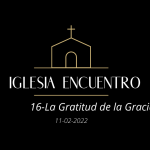Hold on — want the short version right away? If you run or use an online casino, focus first on two checks: (1) can the operator show a current RNG audit certificate from a recognised lab (GLI, iTech Labs, eCOGRA or similar), and (2) does the payments stack (for example Trustly) operate with regulated PSP processes and clear dispute flows. Do those two things, and you’ve covered most of the real-world risks players and operators face.
Here’s the useful bit: ask for a certificate number and an audit date, and test a withdrawal/purchase end-to-end with small amounts. If the operator can’t produce a verifiable audit or their Trustly (or equivalent) flows produce opaque refunds or freezes, treat the product like entertainment only — not a source of reliable returns.

Why RNG audits and payment reviews matter — practical stakes
Wow — the stakes are simple. An RNG audit verifies that game outcomes are random and statistically fair within accepted tolerances; a payments review shows your money moves reliably and transparently. For operators, audits are risk mitigation and a commercial trust signal. For players, they are the single best proxy for fairness and correct money handling when licences or regulator dashboards aren’t available.
In practice, an audit certificate doesn’t guarantee every spin is kind to you — but it does mean an independent lab ran deterministic and statistical tests and found no systematic bias. Conversely, lack of an audit combined with confusing payment handling (delays, unexplained reversals) is the most reliable red flag that the product is optimised for monetisation rather than fairness.
Quick primer: who the auditors are and what they test
Short checklist first: iTech Labs, GLI (Gaming Laboratories International), and eCOGRA are the common names you’ll see. They test RNG seeding, entropy sources, sample distributions, payout tables and the implementation of bonus/free-spin logic. They also verify the deployment — that the live build matches the audited build.
To expand: each lab has different test suites and reporting styles. GLI publishes detailed test plans (GLI-19 for RNG). iTech Labs runs long-run statistical analysis (millions of hands/spins) and code review. eCOGRA offers verification and a consumer-facing seal in some markets. The point is less the brand and more the traceability: a certificate with a serial number and a link you can validate.
Trustly: how it fits into casino payments
Hold on — Trustly is not an RNG lab. It’s a payment method (an instant bank-to-merchant solution) widely used in Europe and increasingly evaluated elsewhere. For casinos, Trustly simplifies deposits and can speed up payouts, because it uses open-banking rails to authorise and move funds.
From a practical perspective, evaluate Trustly on three operational axes: speed (how fast deposits/withdrawals settle), dispute process (how chargebacks/refunds are handled), and AML/KYC friction (how often identity checks block flows). A well-run Trustly integration reduces friction — but it must be combined with clear operator policies on holds, limits and refunds.
Comparison table: RNG auditors vs payment providers (quick view)
| Area | RNG Audit Labs (GLI, iTech, eCOGRA) | Payment Providers (Trustly, traditional PSPs) |
|---|---|---|
| Primary role | Test game fairness and RNG implementation | Move fiat between player and operator; enable payouts |
| Primary deliverable | Audit report & certificate (with date/ID) | Payment settlement, refunds, reconciliation reports |
| Player-facing indicator | Certificate number / audit date / seal | Clear statements on bank/PSP transfers and dispute channels |
| Key failure mode | No audit, altered builds, missing transparency | Opaque holds, slow refunds, unclear dispute resolution |
Where to place the “start playing” link and why (context)
When you’re checking an operator or referencing a social casino for testing, prefer platforms that are transparent about audits and payments. For example, when evaluating user experience and monetisation behaviour you might test a social casino flow for comparative purposes — try a single sign-up and a few free/buy flows at a reputable simulation site like start playing to understand UX patterns and how bonus systems interact with wager mechanics before committing to real-money platforms.
How to verify an RNG certificate — a mini procedure
Quick, practical method:
- Ask the operator for the audit certificate number and lab name (e.g., iTech Labs, GLI-19).
- Visit the lab’s public verification portal (labs usually have a verification page) and enter the certificate ID — note the audit date and build version.
- Confirm the game build/version on the operator’s site matches the audit. If you see a mismatch, raise it with support and treat that as a red flag.
- Check whether the lab performed source-code or black-box tests; source-code reviews are stronger evidence.
Mini-case: two real-world style examples
Example A — The transparent operator: shows GLI certificate (GLI-19), provides a link to the lab’s verification page, displays RTP for key titles, and documents payment partners and timeframes. Outcome: faster player trust-building, lower complaint volume.
Example B — The opaque operator: markets big jackpots, lists no audit, has slow or inconsistent Trustly refunds in test, and uses aggressive monetisation prompts. Outcome: high complaint volume, reputational risk and likely churn.
Quick Checklist — what to ask or look for right now
- Is there a named RNG lab and certificate ID visible? (Y/N)
- Can you verify the certificate on the lab’s site? (Y/N)
- Does the operator publish RTPs for individual games or give an aggregate figure? (Y/N)
- Which PSPs are used (Trustly, Visa, PayID)? Are they displayed in the payments/FAQ section?
- Test small deposit + withdrawal (if real-money): was settlement time as published?
- Is customer support responsive about audit/payment queries? (Time to first reply)
Common mistakes and how to avoid them
- Assuming an audit seal equals continuous monitoring — audits are snapshots. Ask for audit date and frequency.
- Taking “RTP: 95-97%” at face value — verify whether it’s theoretical or independently validated.
- Ignoring payment dispute rules — read the PSP/refund policy and test with small amounts first.
- Equating social casino “chips” with cash value — many social casinos (like some major global titles) use virtual currency that is non-withdrawable; check the T&Cs.
Mini-FAQ
Is an RNG audit mandatory in Australia?
Short answer: Not necessarily for social casinos. The Interactive Gambling Act 2001 and regulator guidance focus on real-money gambling. Many social casino operators are not regulated as gambling products, so RNG audits may be voluntary. For licensed real-money operators, audits and certification are often required by licence conditions.
Can I trust Trustly for quick withdrawals?
Trustly offers fast bank transfers using open-banking rails in supported regions, but speed depends on the operator’s payout policy and AML/KYC checks. Always verify the operator’s stated payout times and test with small sums.
What if I can’t find an audit number?
If an operator cannot or will not supply a verifiable certificate, treat that as a risk indicator. Consider avoiding real-money deposits or limit exposure until transparency improves.
Practical red flags and escalation path
Spot these and escalate: missing or expired audit; audit that references a different game build; payment holds with no clear reason; “non-refundable” in-app purchases in real-money contexts; evasive or no customer support. Escalate by (1) requesting written proof, (2) seeking your bank/PSP dispute channel, (3) reporting to local consumer protection (in AU, report to ACCC or ACMA depending on issue) and (4) if money is at stake, consider legal advice.
Checklist for operators (short) — operational best practice
- Publish recent RNG certificates with verification links and audit scope.
- Document payment partners and dispute/refund procedures.
- Run periodic third-party audits after major releases or changes.
- Use clear UX to disclose virtual vs real currency distinctions.
18+ Play responsibly. If gambling is causing you harm, seek help: in Australia call Gambling Help Online on 1800 858 858 or visit gamblinghelponline.org.au. For immediate crisis support contact Lifeline on 13 11 14.
Sources
- Gaming Laboratories International — GLI-19 RNG Test Standards: https://www.gaminglabs.com
- iTech Labs — Certification & test reports: https://www.itechlabs.com
- Trustly — Merchant integration and docs: https://trustly.com
About the Author: Sam Bennett, iGaming expert. Sam has 12 years’ experience auditing casino platforms and advising both operators and player-rights groups on fairness and payments. He writes on practical checks operators and players can do in minutes.










